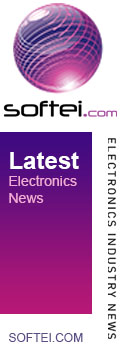Evaluation kit supports energy harvesting embedded controller
For the development of battery maintenance-free IoT equipment, Renesas Electronics has introduced the RE family, which encompasses the company’s current and future line-up of energy harvesting embedded controllers. The RE Family is based on Renesas’ proprietary Silicon on Thin Buried Oxide (SOTB) process technology. SOTB is claimed to dramatically reduce power consumption in both active and standby states, eliminating the need for battery replacement or recharging.
Following the introduction of the RE01 microcontrollers, the first of the RE family, the RE01 Group evaluation kit is now available to allow users working with the RE01
Hiroto Nitta, senior vice president, Head of SoC Business, IoT and Infrastructure Business Unit at Renesas, said: “We hope this will accelerate the spread of IoT equipment powered by energy harvesting.”
The RE01 evaluation kit includes an evaluation board with an RE01 embedded controller, an interface for the energy harvesting device and a rechargeable battery interface. There is also an Arduino-compatible interface for easy expansion and evaluation of sensor boards and a Pmod connector to expand and evaluate wireless functionality. There is also a low power memory in pixel (MIP) LCD expansion board so that users can evaluate display functions faster. The kit also contains sample code and application notes that serve as references for power management design that eliminates the need for battery maintenance, and driver software that supports CMSIS, Arm’s Cortex Microcontroller Software Interface Standard. Sample code for low power ADCs, digital filter and fast Fourier transform (FFT) routines, 2D graphics MIP LCD displays, and secure boot and secure firmware update functions for improved security are available.
The kit can be used to adopt energy harvesting based on RE01 Group devices at the system level and will accelerate the development of equipment that does not require battery maintenance.
IAR Embedded Workbench for Arm which can use the high efficiency IAR C/C++ compiler, and e2 studio (note 2) which can use the free GNU compiler are available as the developmental environment.
The RE01 evaluation kit is available now.




